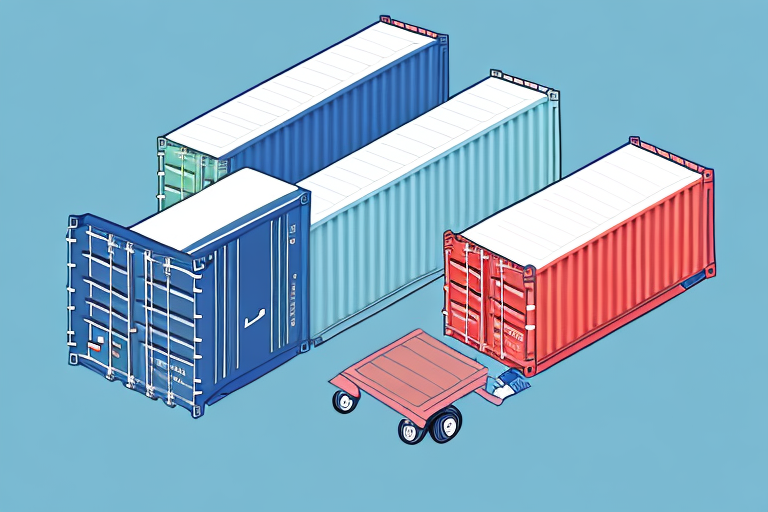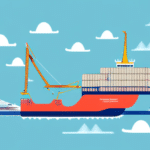If you're involved in global trade, you've probably heard the term FOB shipment. But what exactly does it mean and how can it benefit your business? In this article, we'll explore FOB shipment in detail and discuss its advantages and disadvantages, the risks involved, and how to negotiate with suppliers to get the best deals.
What is FOB Shipment?
FOB stands for 'Free on Board' or 'Freight on Board'. It's a shipping term defined by the International Chamber of Commerce (ICC) as part of the Incoterms rules. FOB indicates the point at which the ownership and responsibility for goods transfer from the seller to the buyer.
FOB Origin vs. FOB Destination
The terms FOB Origin and FOB Destination specify the exact point of transfer:
- FOB Origin: The buyer assumes ownership and responsibility once the goods leave the seller's premises.
- FOB Destination: Ownership and responsibility transfer to the buyer once the goods arrive at the buyer's location.
Understanding these distinctions is crucial to avoid confusion and disputes in shipping agreements.
Comparing FOB and CIF Shipping
Another commonly used shipping term is CIF (Cost, Insurance, and Freight). While FOB defines the point of transfer of ownership, CIF includes additional responsibilities for the seller.
Key Differences Between FOB and CIF
- FOB: Buyer is responsible for insurance and transportation costs once goods are loaded onto the carrier.
- CIF: Seller covers the cost of goods, insurance, and freight to the destination port.
Which is Better for Your Business?
The choice between FOB and CIF depends on your specific business needs:
- FOB: Offers more control and potentially lower costs, suitable for durable goods with lower risk of damage.
- CIF: Provides more security and less responsibility for the buyer, ideal for perishable or fragile items.
Assess your product type, budget, and risk tolerance when deciding which term to use.
Advantages and Disadvantages of FOB Shipping
Advantages
- Cost Savings: Buyers can select their own carriers and negotiate better rates.
- Flexibility: Greater control over shipping schedules and methods.
- Inventory Management: Ownership transfers earlier, allowing for better inventory planning.
Disadvantages
- Risk of Loss or Damage: Buyers bear responsibility once goods are shipped.
- Limited Control Over Shipping: Dependence on buyer's chosen carriers can lead to delays.
- Potential for Increased Administrative Burden: Buyers must handle logistics and customs clearance.
Managing Costs and Risks with FOB Shipping
Cost Reduction Strategies
- Negotiate Shipping Rates: Leverage volume to obtain discounted rates from carriers.
- Optimize Packaging: Reduce dimensional weight charges by using efficient packaging.
- Consolidate Shipments: Combine multiple orders to benefit from bulk shipping discounts.
Risk Management
- Insurance: Purchase comprehensive shipping insurance to protect against loss or damage.
- Reliable Carriers: Partner with reputable carriers with proven track records.
- Clear Agreements: Define responsibilities and liabilities clearly in contracts to prevent disputes.
Best Practices for FOB Shipping
Tips for Successful Shipping
- Detailed Contracts: Clearly outline FOB terms, responsibilities, and expectations.
- Accurate Documentation: Ensure all shipping documents are complete and accurate to facilitate smooth customs clearance.
- Timely Communication: Maintain open lines of communication with suppliers and carriers to address issues promptly.
Negotiating with Suppliers
When negotiating FOB terms, consider the following:
- Understand Responsibilities: Clearly delineate which party handles specific aspects of the shipment.
- Seek Competitive Rates: Compare offers from multiple suppliers to secure the best terms.
- Request References: Evaluate supplier reliability through customer testimonials and references.
Choosing the Right Freight Forwarder
Selecting a competent freight forwarder can significantly impact your shipping success:
- Experience with FOB: Ensure the forwarder is well-versed in FOB terms and international shipping regulations.
- Reputation: Check reviews and seek recommendations to verify reliability.
- Comprehensive Services: Opt for forwarders that offer end-to-end services, including customs clearance and tracking.
FOB Shipment in Global Trade
Role in Global Trade
FOB shipment is a cornerstone of international trade, offering businesses flexibility and cost-effectiveness. It enables companies to manage their logistics effectively, tailoring shipping processes to their specific needs.
Future Trends
As global trade evolves, FOB terms are expected to adapt to new challenges and technologies:
- Digital Documentation: Increased use of electronic bills of lading and blockchain for transparency.
- Sustainability: Greater emphasis on eco-friendly shipping practices within FOB arrangements.
- Automation: Enhanced automation in logistics to streamline FOB processes and reduce errors.
Common Misconceptions and Case Studies
Common Misconceptions
- FOB is Always Cheaper: Costs vary based on multiple factors including carrier rates and shipment specifics.
- FOB is Only for Large Businesses: Small and medium-sized enterprises can also benefit from FOB shipping.
- FOB Eliminates Risk: While FOB offers advantages, it also transfers certain risks to the buyer.
Case Study: Successful Implementation of FOB Shipment
One example of successful FOB implementation is XYZ Enterprises, a clothing manufacturer based in China. Seeking to expand into the U.S. and European markets, XYZ Enterprises adopted FOB shipping to gain better control over their logistics and reduce costs.
- Challenges: Initial difficulties in selecting reliable carriers and managing documentation.
- Solutions: Partnered with a trusted freight forwarder and invested in training for their logistics team.
- Results: Achieved a 15% reduction in shipping costs and accelerated delivery times, leading to increased customer satisfaction and market share growth.
Conclusion
In conclusion, FOB shipment offers numerous benefits for businesses engaged in global trade, including cost savings, flexibility, and improved inventory management. However, it also comes with certain risks that must be carefully managed. By understanding the intricacies of FOB terms, effectively negotiating with suppliers, and implementing best practices, businesses can harness the full potential of FOB shipping to enhance their competitiveness in the international marketplace. Proper planning and execution are key to leveraging FOB shipment as a strategic advantage in your global trade operations.




















